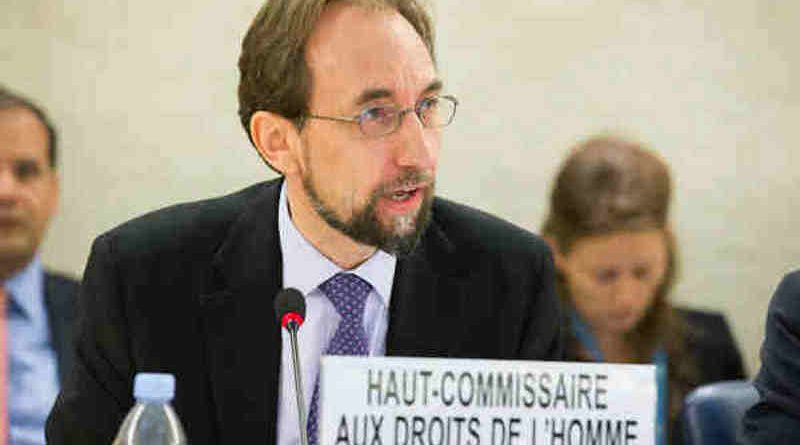Human Rights Situation in India Is Darker and Dangerous: UN

The United Nations (UN) High Commissioner for Human Rights, Zeid Ra’ad Al Hussein, on Wednesday deplored the current measures in India to deport Rohingyas at a time of such violence against them in their country, Myanmar.
Some 40,000 Rohingyas have settled in India, and 16,000 of them have received refugee documentation. India’s Minister of State for Home Affairs has reportedly said that because India is not a signatory to the Refugee Convention the country can dispense with international law on the matter, together with basic human compassion.
However, Zeid warned that by virtue of customary law, its ratification of the International Covenant on Civil and Political Rights, the obligations of due process and the universal principle of non-refoulement, India cannot carry out collective expulsions, or return people to a place where they risk torture or other serious violations.
[ Human Rights Abuses Increasing in Modi’s India: Report ]
“I am also dismayed by a broader rise of intolerance towards religious and other minorities in India. The current wave of violent, and often lethal, mob attacks against people under the pretext of protecting the lives of cows is alarming,” Zeid said.
He added that people who speak out for fundamental human rights in India are also threatened. Gauri Lankesh, a journalist who tirelessly addressed the corrosive effect of sectarianism and hatred, was assassinated last week.
“I have been heartened by the subsequent marches calling for protection of the right to freedom of expression, and by demonstrations in 12 cities to protest the lynchings,” said the Human Rights chief.
[ Transparency Report: Corruption Rampant in Modi’s India ]
“Human rights defenders who work for the rights of India’s most vulnerable groups – including those threatened with displacement by infrastructure projects such as the Sardar Sarovar Dam in the Narmada river valley – should be considered allies in building on India’s achievements to create a stronger and more inclusive society,” Zeid added. “Instead, many are subject to harassment and even criminal proceedings, or denied protection by the State.”
About the violent situation in Kashmir – which is a disputed territory between India and Pakistan – Zeid said he regrets the reluctance of both India and Pakistan to engage with his Office on the human rights concerns he raised in recent months.
This includes the failure of India and Pakistan to grant access to Kashmir on both sides of the Line of Control to verify the worrying developments that continue to be reported there.
“In the absence of such access, my Office is undertaking remote monitoring of the human rights situation in Kashmir on both sides of the Line of Control, with a view to making the findings public in the near future,” Zeid said.
He was addressing the Human Rights Council’s 36th session on Wednesday (11 September 2017). While updating the Human Rights Council on human rights issues in 40 countries, Zeid summarized the situation as “Darker and more dangerous.”




